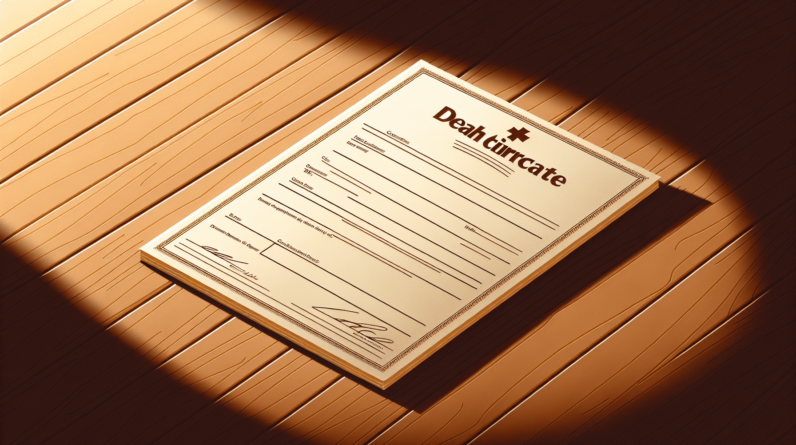
Cremation, a popular alternative to traditional burials, offers a cost-effective and flexible way to honor the departed. However, it is important to be aware of the additional costs that may arise during this process. From my experience, there are several factors that contribute to these costs, such as the choice of urn, memorial services, transportation, and any special requests. Understanding these additional expenses will help you navigate the cremation process with ease and ensure that you can properly honor your loved one without any unexpected financial burdens.
Basic Cremation Costs
When planning a cremation, it is important to consider the various costs that are associated with this end-of-life option. While cremation is often seen as a more affordable alternative to traditional burials, there are still expenses that need to be taken into account. Understanding these costs can help you make informed decisions and plan accordingly. Let’s take a closer look at the basic cremation costs you should be aware of.
Cremation Service Fees
One of the primary costs associated with cremation is the service fee charged by the funeral home or crematorium. This fee typically covers the essential services involved in the cremation process, such as the use of the cremation facility, staff assistance, and coordination of the cremation. The cost of this fee can vary depending on the funeral home or crematorium you choose, as well as the specific services included in the package.
Transportation Costs
Transportation costs are another component to consider. These costs may involve transporting the deceased from the place of death to the funeral home or crematorium. This may include services like body removal and transportation within a certain distance. Some funeral homes may include these costs in their service fees, while others may charge them separately. It’s important to clarify these details when discussing arrangements with the funeral home.
Crematory Fees
The actual cremation process incurs crematory fees. This charge covers the use of the cremation retort, energy costs, and other resources needed for the cremation. Typically, the funeral home or crematorium will have a standard cremation fee that encompasses the basic cremation services. It is crucial to inquire about these fees in advance, as they can vary depending on the location and specific cremation provider.
Permit and Documentation Costs
Permits and documentation costs are often overlooked but can add to the total cremation expenses. These fees involve obtaining the necessary legal permits for the cremation process, including the cremation permit from the local authorities. Death certificates and other required paperwork may also incur additional charges. It is advisable to check with the funeral home or crematorium to understand what permits and documentation are needed and how much they will cost.
Funeral Home Costs
In addition to the basic cremation costs, there may be additional expenses related to the funeral home services you opt for. These costs can vary depending on your preferences and the extent of services you choose.
Facilities for Family Viewing
If you wish to have a viewing or visitation prior to the cremation, the funeral home may provide facilities for this purpose. These facilities can range from a simple viewing room to a fully equipped chapel. The cost associated with using these facilities will depend on the funeral home and the duration of the viewing.
Memorial Service Expenses
Holding a memorial service or celebration of life ceremony is common after a cremation. These services can provide a meaningful way for family and friends to honor and remember their loved one. However, hosting a memorial service may involve expenses such as venue rental, audiovisual equipment, catering, and other associated costs. Discussing your preferences with the funeral home will help provide an estimate of these expenses.
Funeral Director Fees
Funeral director fees cover the professional services provided by the funeral director, including guiding the family through the funeral planning process, coordinating with various parties involved, and ensuring that all necessary arrangements are in place. These fees may be included in the overall service fees or may be charged separately. Understanding these costs can provide clarity on the breakdown of expenses.
Embalming and Preparation Costs
Embalming and preparation costs may only apply if the deceased is to be viewed prior to cremation. These expenses are associated with the embalming process, cosmetic preparation, and dressing of the deceased. It’s important to note that embalming is not a requirement for cremation, and it’s necessary to discuss these options with the funeral home to determine if they are necessary and the associated costs.
Cremation Container Costs
When it comes to cremation, there are various container options available for holding the remains during the cremation process. The choice of container can impact the overall cost, and it’s essential to understand the different options and their associated expenses.
Cremation Casket or Urn
A cremation casket is a container specifically designed for the cremation process. It is usually made of combustible materials and can vary in cost depending on the type of material, design, and craftsmanship. Cremation urns, on the other hand, are containers that hold the cremated remains after the process is complete. Urns come in a wide range of materials, styles, and prices, allowing families to choose one that reflects their preferences and budget.
Alternative Containers
In addition to traditional caskets and urns, there are alternative containers available. These containers are often more affordable and can be made of materials such as cardboard or biodegradable materials. They serve the purpose of holding the deceased during the cremation process, after which the remains can be transferred to an urn or scattered based on the family’s wishes. Opting for alternative containers can help reduce costs while still ensuring a respectful cremation process.
Keepsake Urns or Jewelry
Keepsake urns and cremation jewelry provide options for families who wish to keep a small portion of the cremated remains as a memorial keepsake. These miniature urns or jewelry pieces can be customized, allowing for a personal touch in remembering the departed. While keepsake urns and jewelry may not be a necessity, they can be an additional cost to consider if you desire to keep a tangible reminder of your loved one.
Additional Services
Apart from the basic cremation costs and container expenses, there are additional services that some families may choose to include in their arrangements. While these services are optional, they can provide a more personalized and meaningful experience.
Scattering of Ashes
For families who wish to scatter the ashes of their loved one in a meaningful location, the funeral home may offer assistance in organizing and facilitating the scattering ceremony. This can involve transportation to the chosen location, coordination with permits or licenses, and any necessary arrangements. Scattering services can vary in cost depending on the distance traveled and the complexity of the ceremony.
Ceremonial Urn Rental
If you are planning a memorial service or a gathering where the urn will be present, some funeral homes offer ceremonial urn rental services. This allows you to have a decorative urn on display during the event without the need to purchase a permanent one. Rental costs can vary depending on the type and design of the ceremonial urn.
Urns for Ashes to Be Divided
When multiple family members or loved ones wish to keep a portion of the ashes, separate urns may be required. Funeral homes often offer smaller urns specifically designed for this purpose. The cost of these individual urns will depend on their size, material, and any customization chosen.
Memorialization Costs
Memorialization serves as a way to honor and remember the departed. While not a requirement, it can provide comfort and a lasting tribute. Understandably, there can be costs associated with memorialization options.
Cremation Jewelry
Cremation jewelry offers a unique and discreet way to keep a small portion of the cremated remains close to your heart. These jewelry pieces are designed to hold a small amount of ashes and can come in various styles, including pendants, bracelets, and rings. The cost of cremation jewelry can range depending on the material used and the intricacy of the design.
Memorial Plaques or Markers
Memorial plaques or markers provide a physical memorialization option for those who choose cremation. These can be placed in memorial gardens, columbariums, or other designated areas. The cost of memorial plaques or markers varies based on the material, size, and customization chosen.
Columbarium or Mausoleum Fees
If you decide to place the cremated remains in a columbarium or mausoleum, there are associated fees to consider. These fees typically cover the niche or space rental, ongoing maintenance, and any additional memorialization options within the designated area. The cost of columbarium or mausoleum fees will depend on the location, size, and specific features of the chosen resting place.
Transportation and Shipping
Transportation and shipping costs may apply in certain circumstances, especially if you opt for a cremation away from your local area or if you wish to transport the remains to a desired location.
Transporting the Deceased
Transporting the deceased from the place of death to the funeral home or crematorium may incur transportation costs. These costs can vary depending on the distance traveled and the specific services provided. It is important to discuss transportation options with the funeral home to understand the associated expenses.
Shipping Ashes to a Desired Location
If you plan to transport the cremated remains to a different location, whether it be domestically or internationally, there will be shipping costs involved. These costs can include packaging, documentation, and shipping fees. It is imperative to work with professionals experienced in handling cremated remains to ensure proper and legal transport.
Legal and Administrative Costs
Certain legal and administrative costs are associated with cremation that may need to be considered when making arrangements.
Death Certificates
Death certificates are essential documents that legally certify the passing of an individual. These certificates may be required for estate settlement, insurance purposes, and other administrative reasons. Funeral homes can assist you in obtaining the necessary number of death certificates, but there is an associated cost per certificate.
Obituary and Announcement Fees
If you choose to publish an obituary or announce the passing of your loved one through local newspapers or online platforms, there may be fees to consider. The cost of obituaries typically depends on the length, placement, and publication chosen. It is advisable to inquire about the rates and packages available from the respective news outlets.
Permit Fees for Scattering Ashes
If you plan to scatter the ashes in a specific location, you might incur permit fees. Different jurisdictions have varying regulations regarding scattering, and obtaining the necessary permits is crucial to ensure compliance. Inquire with the appropriate authorities in the area where you wish to scatter the ashes to determine the associated costs.
Additional Optional Expenses
Beyond the essential expenses, there are additional optional costs that you may choose to include to personalize the memorial experience.
Cremation Flowers
Floral arrangements can add a sense of beauty and remembrance to any memorial service or gathering. Funeral homes often collaborate with local florists to provide a variety of options, from casket sprays to sympathy flower arrangements. The cost of cremation flowers will depend on the size, type of flowers used, and the specific arrangement chosen.
Memorial Stationery
Memorial stationery can help create a cohesive and personalized experience for attendees at a memorial service or celebration of life ceremony. This can include memorial programs, prayer cards, guestbooks, and thank-you cards. The cost of memorial stationery will depend on the quantity, design, and customization chosen.
Photography or Videography Services
Capturing the moments of a memorial service or celebration of life ceremony can hold sentimental value for those in attendance. Hiring a professional photographer or videographer to document these events can ensure that the memories are preserved for future generations. The cost of photography or videography services will depend on the duration, coverage, and additional products desired, such as photo albums or edited videos.
Post-Cremation Costs
Even after the cremation process is complete, there may be additional costs associated with the post-cremation arrangements.
Urn Engraving or Personalization
If you choose to personalize the urn with engravings, custom artwork, or other personal touches, there may be costs involved. The expenses will depend on the complexity of the chosen design, the materials used, and the services provided by the funeral home or a separate engraving professional.
Ashes Repackaging or Special Containers
In some cases, families may wish to transfer the ashes from the temporary container provided by the crematorium to a more permanent or special container. This can include decorative urns, custom-made containers, or even specially designed scattering tubes. The costs associated with ashes repackaging or special containers will vary depending on the chosen container and any customizations requested.
Ashes Interment Fees
If you plan to bury the cremated remains in a cemetery, there will be interment fees to consider. These fees cover the opening and closing of the burial plot, the placement of the ashes, and any associated administrative or maintenance costs. The cost of ashes interment will depend on the cemetery’s policies, location, and specific services provided.
Pre-planning and Pre-payment
Pre-planning and pre-payment options offer the opportunity to make the necessary arrangements in advance, minimizing the financial burden on your loved ones during a difficult time.
Cremation Insurance or Pre-paid Plans
Cremation insurance or pre-paid plans enable individuals to pre-arrange and pre-pay for their cremation and associated costs. By doing so, you can secure today’s prices and protect against future price increases. These plans can be customized to fit your preferences and budget, providing peace of mind for yourself and your loved ones.
Pre-planning Consultation Fees
If you choose to engage in pre-planning, there may be consultation fees associated with meeting with a funeral director or a pre-planning specialist. These fees cover the time and expertise provided in helping you make informed decisions and create a personalized plan. Inquire with the funeral home or crematorium regarding any consultation fees and what services are included.
By understanding the additional costs associated with cremation, you can make informed decisions and create a plan that aligns with your preferences and budget. Remember to discuss these costs with the funeral home or crematorium to ensure transparency and clarity throughout the entire process. While planning for end-of-life expenses may seem overwhelming, it can provide peace of mind for you and your loved ones, allowing you to focus on the significance of honoring and remembering a life well-lived.






